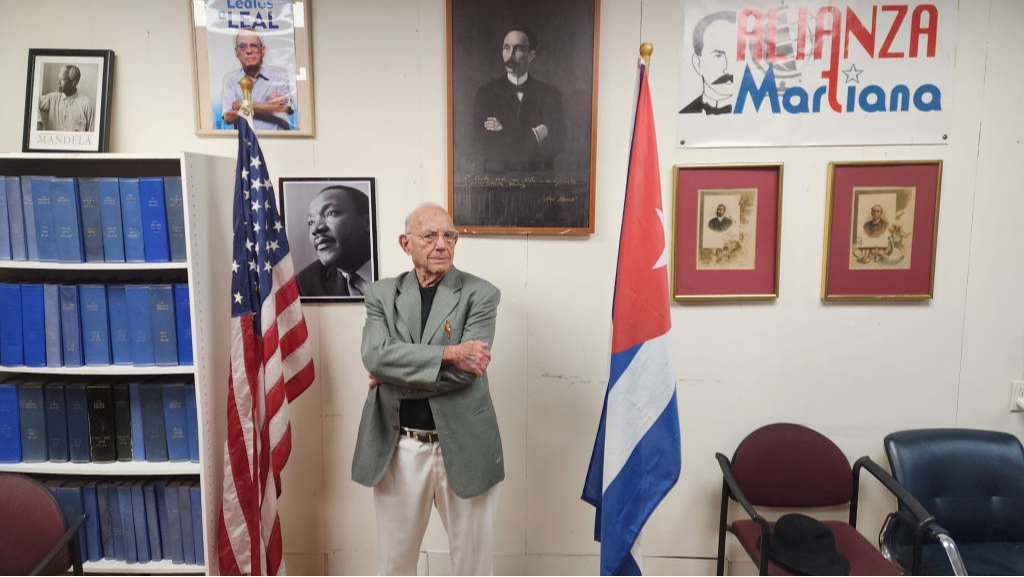
Max Lesnik (File image/RHC)
By Roberto Morejón
During the same week in which Mexican President Andres Manuel Lopez Obrador asked his U.S. counterpart, Joseph Biden, to end the blockade against Cuba, intolerant people in Miami attacked an activist opposed to this coercion.
The Mexican Head of State spoke with Biden about the flows to the southern border of the Northern Power and told his interlocutor that not hindering Cuba's development would help reduce migration.
It was not the first time that López Obrador made such a request, nor was it the first time that Max Lesnik received threats from extremists in Miami.
Only this time, the Cuban-American journalist, who advocates that Washington put an end to the penalties against the largest of the Antilles, received a death threat by mail, in contrast to previous verbal threats.
The positions of López Obrador and Lesnik are in tune with the tightening of a blockade against Cuba which celebrated the 62nd anniversary of its officialization.
John F. Kennedy legalized that aggressive disposition when he signed presidential proclamation 3447 which decreed the blockade to go into effect on February 7, 1962.
With the worn-out pretext of Havana's rapprochement with socialist countries, the administration of Dwight Eisenhower and his Deputy Secretary of State Lester Mallory were already urging to deprive the Caribbean nation of money and supplies.
In 2021, the outgoing administration of Donald Trump presented the extreme right of Miami with 240 measures to strengthen the siege, which today, together with the consequences of the pandemic and internal errors, affects material deprivations in the Caribbean archipelago.
Cuba, also exposed to the consequences of its inclusion in the list of countries that, according to Washington, sponsor terrorism, suffered damages due to the siege valued at almost 4.9 billion dollars between March 2022 and February 2023.
In view of this and other impacts, Cubans living in the United States are promoting to Biden the fulfillment of his 2020 campaign promises to relax the restrictions on Cuba.
Except for some symbolic provisions, Trump's package remains in place during the Biden administration.
Not even because for the 31st time the UN General Assembly supported the resolution on the need to put an end to the blockade of Cuba, there is no indication that Kennedy's outburst will be diluted.

